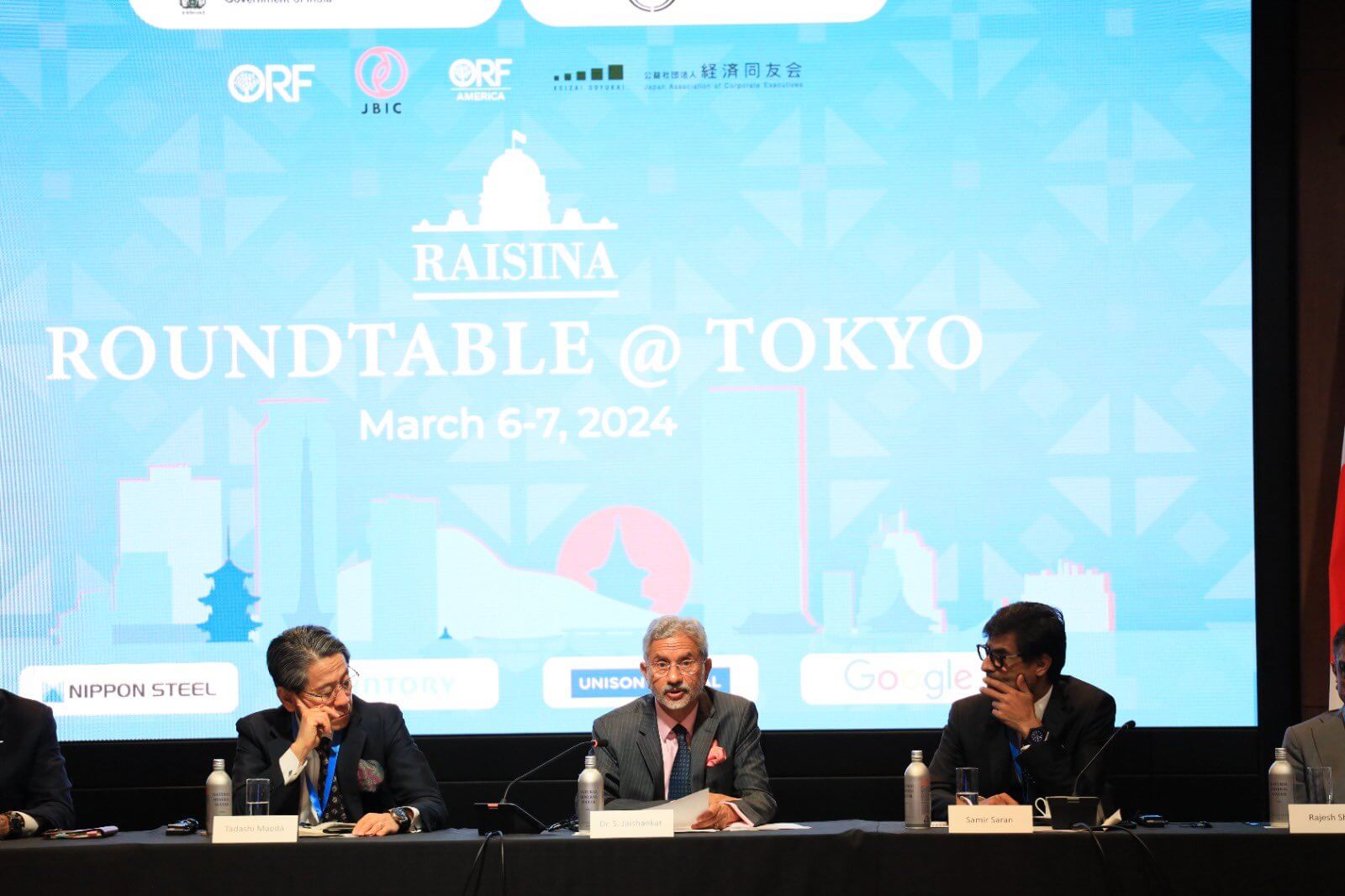In his remarks at the inaugural Raisina Roundtable in Tokyo on Thursday, Indian External Affairs Minister S. Jaishankar said it is crucial that Japan appreciates the pace of change in India today. Jaishankar, who is in Japan for a three-day visit from 6-8 March, highlighted the need for India and Japan to collaborate across domains of defence, technology, space and connectivity, among others.
India’s Transformation Makes it a Credible Partner
“The progress in India in the last decade promises even more for our partnership,” the EAM said. He said that India is unquestionably a different country now, whether it is in terms of infrastructure development, ease of living, digital delivery, a startup and innovation culture, or setting the global agenda.
おはようございます東京!
— Dr. S. Jaishankar (Modi Ka Parivar) (@DrSJaishankar) March 7, 2024
Speaking at the Raisina Roundtable in Tokyo. https://t.co/vPi4GkRoch
Jaishankar highlighted India’s transformation in recent years, saying that the country is building 28 kilometres of highway every day, creating eight new airports every year and establishing 1.5 to two metros every year. “This transformation of India makes us a more effective and credible partner,” he asserted.
India, Japan Collaboration
Jaishankar said India and Japan enjoy a special strategic and global partnership and intend to meet the challenges facing the international order. He stressed that the economic weight of the two nations should be a stabilising factor in their ties. The Minister urged that India and Japan collaborate in the deployment of technologies like semiconductors, electric mobility, renewables, artificial intelligence, and space. He also said that the two nations need to cooperate on climate change and explore partnerships in areas like green hydrogen and green ammonia.
Jaishankar emphasised the need for collaboration between Japan and India in enhancing connectivity. In this regard, he called for Tokyo's participation in developing significant India-led corridors such as the India Middle East Europe Economic Corridor (IMEC) and the International North–South Transport Corridor (INSTC) in the west, along with initiatives like the Trilateral Highway and the Chennai-Vladivostok route.
Strengthening Defence Capability, Quad
Jaishankar said that the two nations must strengthen their defence capabilities for the benefit of the larger region. “This family of defence and security concerns are likely to occupy a larger place in our thinking,” he said.
He highlighted the need to cooperate in areas of development assistance, maritime safety and counter-terrorism. Additionally, he stressed the importance of the Quad grouping with the US and Australia, saying that India and Japan’s “commitment to a free and open Indo-Pacific is being taken forward by the Quad with each passing year.”
Delighted to speak at the Inaugural Raisina Roundtable in Tokyo today.
— Dr. S. Jaishankar (Modi Ka Parivar) (@DrSJaishankar) March 7, 2024
Made three observations:
➡️ World is heading for re-globalization with building of resilient and reliable supply chains and trusted and transparent digital transactions. India and Japan are natural partners… https://t.co/0CZG58DchV pic.twitter.com/vRsi83Pa4O
Dig at China
Jaishankar highlighted that the global order has changed, with countries’ relative weight, importance, and capability changing. He underscored that “big shifts” in nations' capabilities, influence, and ambitions lead to consequences. Giving the example of India’s ties with China, he said that there was no bloodshed on the Sino-Indian border for 45 years, but it changed in 2020. “When a country, sort of, does not observe written agreements with a neighbour, then I think you have cause for concern,” Jaishankar remarked.
While stressing the need for China to adhere to border management pacts and maintain peace along the Line of Actual Control (LAC), he said that there should be an “equilibrium” in the Sino-India ties.

